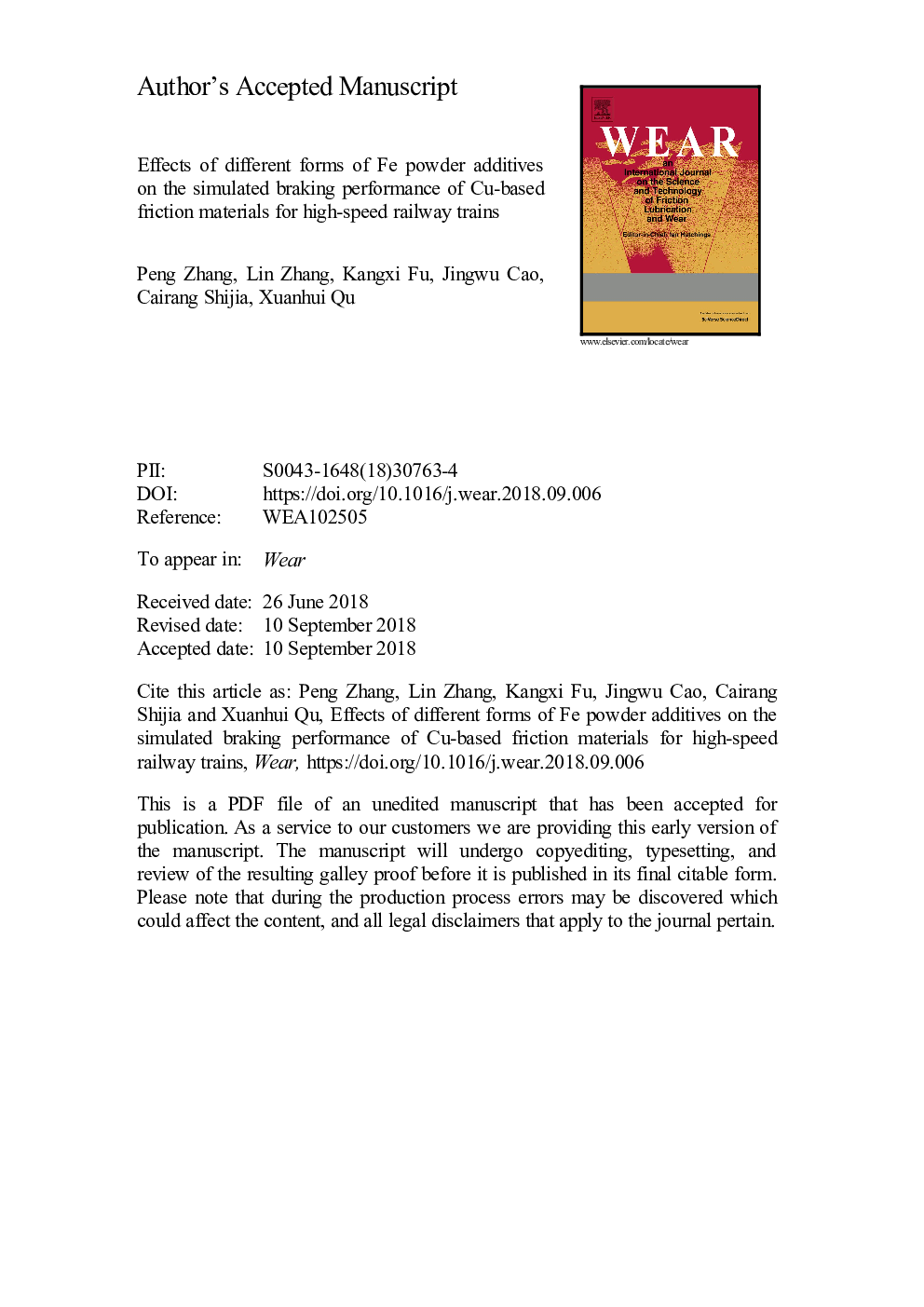| کد مقاله | کد نشریه | سال انتشار | مقاله انگلیسی | نسخه تمام متن |
|---|---|---|---|---|
| 9952588 | 1454933 | 2018 | 33 صفحه PDF | دانلود رایگان |
عنوان انگلیسی مقاله ISI
Effects of different forms of Fe powder additives on the simulated braking performance of Cu-based friction materials for high-speed railway trains
دانلود مقاله + سفارش ترجمه
دانلود مقاله ISI انگلیسی
رایگان برای ایرانیان
موضوعات مرتبط
مهندسی و علوم پایه
مهندسی شیمی
شیمی کلوئیدی و سطحی
پیش نمایش صفحه اول مقاله

چکیده انگلیسی
Controlling the friction and wear characteristics of candidate materials for brake pads for high-speed railway trains is a challenge and requires simulative test methods. In this work, the effects of three different forms of Fe-containing powders in Cu-based composites, and at concentrations ranging from about 22-35â¯wt%, were tested on a computer-controlled dynamometer using a new braking testing procedure. The results indicated that a three-stage braking procedure is effective to evaluate both the friction and wear properties of experimental brake pad materials. The brake pad containing 30.6â¯wt% copper-coated iron powder (designated CCF2) exhibited the highest and the most stable friction coefficient of all composites tested and presented no obvious recession of friction coefficient even through a series of emergency braking trials having a total absorptive energy up to 32â¯MJ. At the final stage of simulated actual operation of high-speed railway trains, the friction coefficient of the CCF2 is within the limits and near the upper limit of the tolerance range for the average friction coefficient of brake pads specified in China Railway Corporation specification TJ/CL 307-2014 for high-speed railway trains. Moreover, the wear loss of the brake pad is as small as 0.25â¯cm3/MJ, which is 29% lower than that in the specification limit (0.35â¯cm3/MJ).
ناشر
Database: Elsevier - ScienceDirect (ساینس دایرکت)
Journal: Wear - Volumes 414â415, 15 November 2018, Pages 317-326
Journal: Wear - Volumes 414â415, 15 November 2018, Pages 317-326
نویسندگان
Peng Zhang, Lin Zhang, Kangxi Fu, Jingwu Cao, Cairang Shijia, Xuanhui Qu,